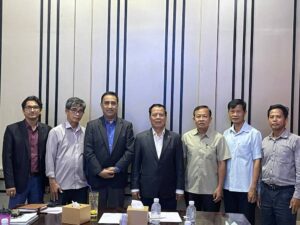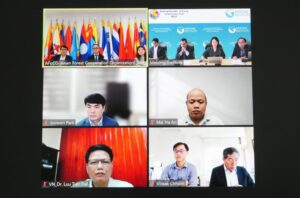Fostering Food Safety in the GMS
In 2015, the Mekong Institute Food Safety Capability Activity (MIFSCA) was launched to provide training and support services on food safety for local governments, small and medium enterprises, and research/academic institutions from Cambodia, Lao PDR, Myanmar, and Vietnam (CLMV). The initiative was supported by the New Zealand Aid Programme under the New Zealand Ministry of Foreign Affairs and Trade.
Anchored on the vision of developing responsibility and promoting a food safety culture across relevant actors along the horticultural value chain, the MIFSCA targeted to enhance the capacity of local governments and private sector actors in the region.
By September 2017, seven regional training programs were delivered improving food safety knowledge and skills among 193 public and private sector representatives within the region. In turn, course participants organized localized trainings, improved food safety regulations and guidelines, or published food safety stories in various mass media platforms. At the same time, small and medium enterprises initiated improvements in their food safety practices and facilities as they work toward complying with local and international food safety and quality standards.
In June 2018, the second phase of the project, re-branded as PROSAFE: Promoting Safe Food for Everyone, was launched, and will run until May 2023.
Taking stock of the achievements from the first phase, the project now seeks to strengthen technical support and scale up regional and local capacity building initiatives to further promote food safety in CLMV. In the next five years, the Project hopes to further engage key actors from both the public and private sectors and put in place an integrated mechanism leading toward significant changes in food safety perception and practices in the region.
To achieve this, a major component of the Project will still focus on providing a series of safe food courses dealing with different food safety topics such as food safety risk analysis, food safety inspection and audit, food hygiene and sanitation, and food safety emergency response. Beyond the training programs, the Project will also provide technical support to post-training outreach activities and projects initiated by participants.
The Project builds on the key features of the MIFSCA first phase, which include the promotion of food safety along the value chain, involvement of the public and private sectors, addressing country-identified training needs, planned outreach to support the application of knowledge and skills, and use of New Zealand and regional food safety expertise.



